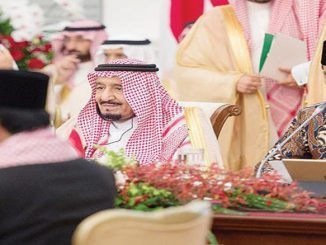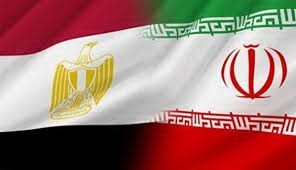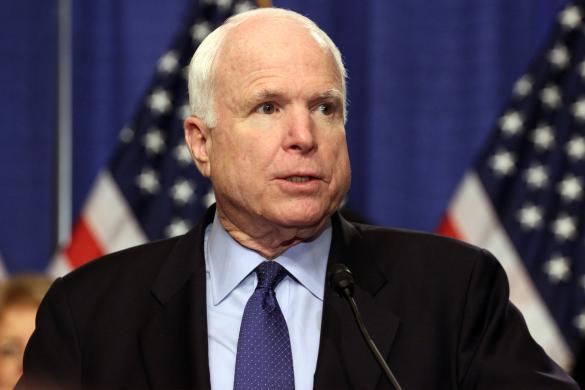
Habib El-Sadr, Iraq’s Ambassador to Cairo, said that his country will provide Egypt with the first petroleum shipment from Al-Basra Oil Terminal within days, according to a recent agreement signed between the two countries.
Egypt’s Petroleum Minister Tarek El-Molla announced in December that his country was seeking to reach an agreement with Iraq over importing crude oil directly and that he hoped to finalize the deal in the first quarter of 2017, according to MENA .
Last month, in a Cairo meeting of the Organization of Arab Petroleum Exporting Countries (OAPEC), El-Molla said that Egypt’s aims to import 1-2 million barrels per month from Iraq.
Moreover, Egypt’s Petroleum Minister visited Baghdad last October accompanied by an official delegation and met with the Iraqi Prime Minister Haider Al-Abadi who said that Iraq aspires to strengthening ties with Egypt in the energy, industry, and oil & gas fields as reported by the Middle East Monitor.
According to a statement released by the Abadi’s press office, the Iraqi Prime Minister discussed, with Egypt’s Minister of Petroleum and Mineral Resources Tarek El-Molla, enhancing cooperation between Egypt and Iraq in the fields of industry and oil & gas; in addition to forming an Egyptian-Iraqi partnership through establishing new cooperation strategies between companies in the two countries.
Abadi pointed to counter terrorism operations common ground between both countries as “he stressed on increasing joint strategic projects with Egypt that coincide with the Iraqi army victories against terrorism, which he considered as allowing more chances for joint action.”
In the same context, Egypt’s Petroleum Minister Tarek El-Molla pointed to the importance of strengthening cooperation with Iraq in the areas of industry and oil & gas, as well as other sectors.
“The members of the National Iraqi Alliance, which is the largest Shiite group in the parliament, have called on the Iraqi government to supply Egypt with crude oil on credit, in response to what they described as “blackmail” practiced by Saudi Arabia against Cairo,” as reported by Middle East Monitor.
In fact, the latest Iraqi stance offering supplying Egypt with oil came after Saudi Arabia halted its oil supply to Egypt, which infers that Egypt is moving forward in steady steps toward the new alliance camp including Iran and Russia which stands in the opposite side of the Saudi and Gulf countries camp.
Furthermore, the news about the first petroleum shipment from Iraq to Egypt came parallel with recent news which claimed that Egypt is about to train four Iraqi army units on war against terrorism, in the light of the rapprochement between Egypt and the Iranian axis in the region, according to Israeli news website for Intelligence affairs ‘Nziv Net’.
This month, the Israeli news site said, “Egypt had agreed to send peacekeeping troops to Syria based on an Iranian request as well as Iraq’s decision to replace Saudi Arabia in providing Egypt with cheap oil supply with Iranian approval. The military cooperation between Egypt and Iraq has become a normal step for enhancing the relations between Egypt and the Iranian-Iraqi axis.”
The site considered the Egyptian move ‘a vague step’ as Iraq and Iran are two Shiite countries whereas Egypt is a prominent Sunni country.
It also added that, “In the background, we can witness a great improvement in the relations between Egypt and the Houthis (a Shiite rebel movement) in Yemen with a clear Iranian manipulation after Egypt had sent military troops to Yemen for fighting on the Saudi side against the Shiite rebels and the Iranian presence.”
“It was recently revealed that Egypt has withdrawn most of its troops in the region and left only few ships to secure Bab al-Mandab Strait,” according to Nziv Net.
Tensions between Cairo and Riyadh has escalated recently as a result of Egypt’s divergent stances in sensitive issues to Riyadh.
Egypt has voted in favor of a Russian-backed draft resolution in the UN Security Council on Syria, which was opposed by Saudi Arabia, which angered Egypt’s major Gulf backer so much that it described Egypt’s vote as a “painful” stance.
After the voting, the Saudi ambassador to the UN, Abduallah al-Mouallimi said, “It was painful that the Senegalese and Malaysian stance was closer to the Arab’s consensus than the Egyptian delegation.”
He also said that he feels pity for these countries that voted for the Russian resolution, stressing that his country will continue backing the Syrian people by all means.
Two days following the voting, Saudi state-owned oil company Aramco announced halting oil product supply to Egypt.
Since then, Egypt seeks to secure its domestic market needs to replace the oil shortage after the Saudi decision that was supposed to facilitate the payments to finance Egypt’s petroleum needs for five years.



